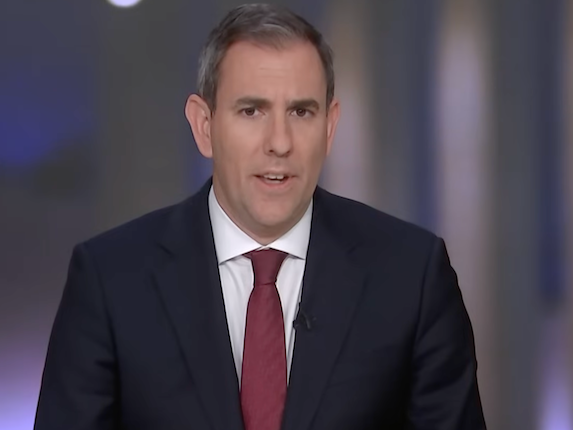As policymakers begin to confront inequality, the response from corporate Australia reveals a telling divide, writes Carl Rhodes.
AFTER DECADES OF RISING inequality, economic fairness is finally back on the political agenda thanks to Treasurer Jim Chalmers’ Economic Reform Roundtable.
Chalmers left the summit, declaring:
“Our tax system is imperfect and one of its most troubling imperfections is best seen through an inter-generational lens.”
He concluded that he had “won support” for his principal objective: ensuring “a fair go for working people” in Australia.
It’s about time.
Decades of neoliberal policy have driven inequality to levels that, according to Labor MP Andrew Leigh, could see Australia plunge into “U.S. style inequality”, if left unchecked.
Among developed nations in the Organisation for Economic Co-operation and Development (OECD), Australia ranks a dismal 17th in income equality and 19th in wealth inequality. The gap is widening. The latest figures show wealth inequality reaching record highs.
Business backs itself
As policymakers begin to confront inequality, the response from corporate Australia reveals a telling divide. A coalition of 27 groups representing the business, investment and university communities made a joint submission to the Roundtable, clearly describing their position. They identified four reform priorities they claim will “deliver benefits for economic activity across the whole country”.
Their proposals include improving government incentives for business investment and innovation; overhauling government regulation to reduce “red tape”; changing the regulatory framework to make major project approvals easier; and reforming taxation to encourage investment and economic growth.
These are all valid strategies for boosting productivity and profits. But they share a common feature: they focus squarely on helping businesses grow revenues and create jobs.
When it comes to the Roundtable’s overarching goal of “lifting living standards for Australians,” the business community is conspicuously vague.
Growth without fairness
There are two sides to the coin of pursuing greater economic equality. One is to boost economic productivity and growth. The other is to ensure that the benefits of that growth are more fairly distributed.
Business, it seems, heard only half the message.
Bran Black, chief executive of the Business Council of Australia (BCA) responded to the Roundtable by stating that:
“[Any tax reform must] first and foremost…lead to a package that lifts investment for all businesses, so we grow the size of the pie for all Australians rather than just redistributing it.”
Fair enough. But while the business sector offers specific proposals for lifting investment, it is almost entirely silent on the question of redistribution.
The one exception? The BCA celebrated how the rejection of new levies on businesses for skills programs were “a welcome sign of pragmatic reform over punitive redistribution”.
That framing speaks volumes. Those who would be “punished” by redistribution, and who the BCA cares about, are the ones who continue to benefit disproportionately from Australia’s widening inequality — themselves!
Consider the CEOs the BCA represents. They have benefited handsomely from widening inequality. The average salary of the CEOs of Australia’s top 100 companies has climbed to nearly $6 million per annum, roughly 55 times the earnings of the average Australian. Overall wage growth for those outside of the executive class has been relatively stagnant.
United in lifting living standards?
The BCA insists that any economic reforms must “lift business investment across the economy to boost productivity and drive higher living standards for all Australians”. But its lack of direct engagement on how those living standards will be lifted is telling.
More than 40 years of neoliberalism has taught us that unleashing business from taxes and regulations may boost the corporate economy, but it does so at the expense of economic justice. The benefits are real, but they accrue disproportionately to the wealthy few.
The reality is that productivity improvements do not get fairly passed on to workers. As recently reported by the Australia Institute, if wages had grown at the same rate as productivity since 2000, average wages would have risen by 18 per cent. That would mean $350 more in the average weekly pay packet. The people who really benefit are corporate executives and shareholders.
There was a time when Australians were encouraged to believe that if businesses pursued their own financial interests, the benefits would somehow trickle down to everyone, as if corporations were guided by an invisible hand. That illusion has long since shattered.
The tide is turning. The notion that an unfettered corporate free market guarantees both growth and equity no longer commands serious credibility. The Economic Reform Roundtable signals that federal policymakers are beginning to wake up to this reality. Business appears reluctant to do the same.
Business faces a choice
It is not too late for corporate Australia to step up and support an agenda that genuinely lifts living standards and reverses the entrenched trajectory of economic inequality, one that they have long been complicit in. But meaningful change will not come if institutions like the Business Council of Australia continue to recycle the same tired ideological platitudes that helped create the problem in the first place.
A strong and fair economy serves social and business interests in the long run. It defuses the threat of populist disruption, and preserves the stability essential for growth. It restores trust in business, motivating workers, customers and investors alike. It increases social mobility that drives economic growth. It strengthens education and skills and expands aggregate demand.
Australia stands at a crossroads. One path leads to deepening inequality and economic fragility. The other offers shared prosperity, long-term stability, and renewed trust.
It’s time for business to choose: growth with fairness, or continued complicity in Australia’s inequality crisis.
Carl Rhodes is Professor of Business and Society at the University of Technology, Sydney. He has written five books on the relationship between liberal democracy and contemporary capitalism. You can follow him on X/Twitter @ProfCarlRhodes.




